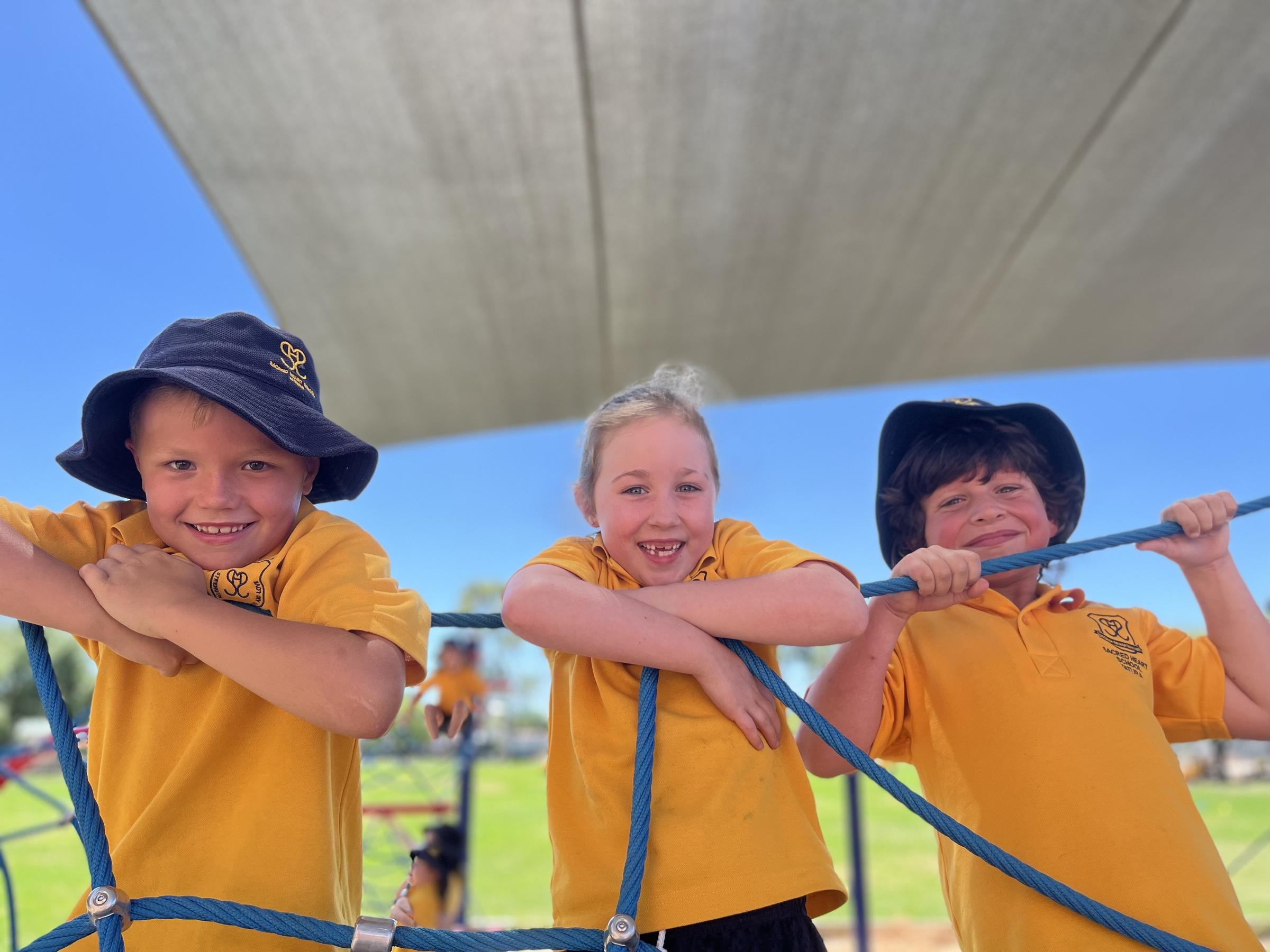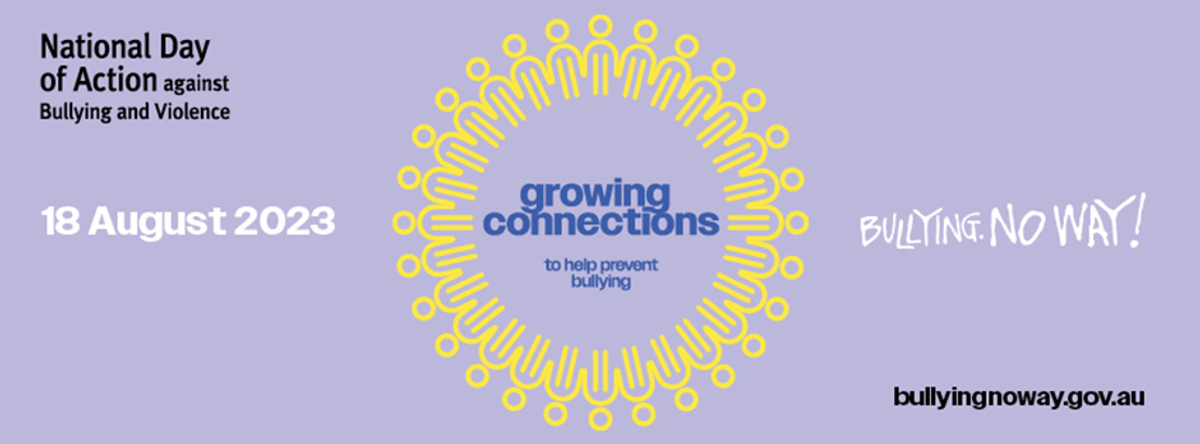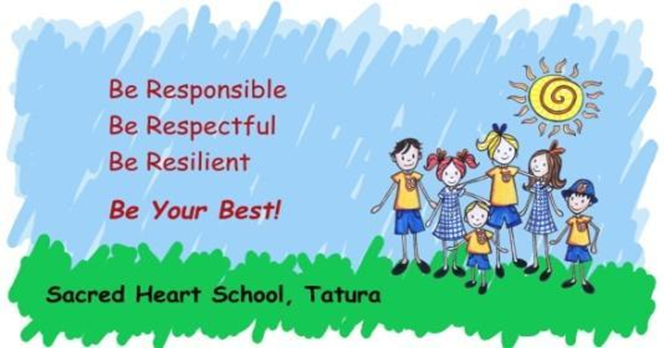Thrive & Flourish

On Friday we join with the schools across the country in the National Day of Action (NDA) against Bullying and Violence, to say ‘Bullying. No Way!’.
Together we can make a change. Everyone has a role to play for bullying prevention. The NDA promotes the importance of school, parent and community connections to build safe and supportive learning environments.
The NDA is an opportunity for us to deliver the powerful message that bullying is never ok. At our school we encourage students and our school community to join the conversation to find evidence-informed solutions to proactively address bullying.
Growing connections helps children feel accepted, respected, included and supported. The 2023 NDA theme offers an opportunity to increase our children’s connectedness and sense of belonging.
Research has shown that a sense of connection to school supports the development of positive social behaviours and decreases the likelihood and negative impacts of bullying.
Parents and carers have a key role in preventing and responding to bullying.
Learn what bullying is and what it is not. Understanding the definition of bullying is the first step in talking about how to prevent and respond to bullying with your child. 'Bullying' is a word that is used for behaviours that are not actually bullying. These other behaviours can be just as serious but may require different responses.
Bullying is an ongoing and deliberate misuse of power in relationships through repeated verbal, physical and/or social behaviour that intends to cause physical, social and/or psychological harm. It can involve an individual or a group misusing their power, or perceived power, over one or more persons who feel unable to stop it from happening. Bullying can happen in person or online, via various digital platforms and devices and it can be obvious (overt) or hidden (covert). Bullying behaviour is repeated, or has the potential to be repeated, over time (for example, through sharing of digital records). Bullying of any form or for any reason can have immediate, medium and long-term effects on those involved, including bystanders. Single incidents and conflict or fights between equals, whether in person or online, are not defined as bullying.
Responses to reports of bullying can be much more effective when parents and carers report bullying and support school staff efforts to respond to it.
If your child reports that bullying is occurring at school, or the bullying is occurring outside school hours and involves students from the school, you should let the school know about the situation.
Working together with the school is the best way to help your child resolve bullying issues.
As a school, we will work with you to resolve the situation and will also work with the other student's parents. Due to privacy laws, they will not be able to share information about any other students involved.
Liam's Joke of the Week
Q: What do you call a three legged donkey?
A: A Wonkey!
Take care of yourself
Alla prossima volta
Dom Poppa





